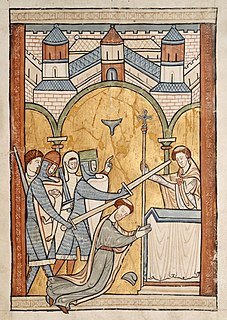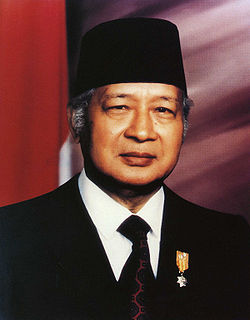A Quote by Antonio Porchia
There are sufferings that have lost their memory and do not remember why they are suffering.
Related Quotes
The world is full of suffering. Birth is suffering, decre- pitude is suffering, sickness and death are sufferings. To face a man of hatred is suffering, to be separated from a beloved one is suffering, to be vainly struggling to satisfy one's needs is suffering. In fact, life that is not free from desire and passion is always involved with suffering.
It is useful to remember that history is to the nation as memory is to the individual. As a person deprived of memory becomes disorientated and lost, not knowing where they have been or where they are going , so a nation denied a conception of the past will be disabled in dealing with its present and its future.
Memory is corrupted and ruined by a crowd of memories. If I am going to have a true memory, there are a thousand things that must first be forgotten. Memory is not fully itself when it reaches only into the past. A memory that is not alive to the present does not remember the here and now, does not remember its true identity, is not memory at all. He who remembers nothing but facts and past events, and is never brought back into the present, is a victim of amnesia.
I can truly say, after an experience of seventy years, that all the cares and anxieties, the trials and disappointments of my whole life, are light, when balanced with my sufferings in childhood and youth from the theological dogmas which I sincerely believed. . . . The memory of my own suffering has prevented me from ever shadowing one young soul with the superstitions of the Christian religion.
To know the Cross is not merely to know our own sufferings. For the Cross is the sign of salvation, and no man is saved by his own sufferings. To know the Cross is to know that we are saved by the sufferings of Christ; more, it is to know the love of Christ Who underwent suffering and death in order to save us. It is, then, to know Christ.
The average person's short-term memory can hold only five to seven bits of data at any one moment. If you put more items in, others fall out. The older you are, the more you have crammed into those memory circuits. Twenty-five-year-olds can remember things because they still have empty space. Some of us take our children to the supermarket in the hope they will remember why we are there.






































